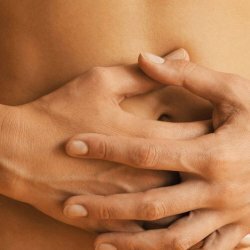Osteomyelitis diagnosis treatment
 Osteomyelitis - infection of bones. This can happen in any bone of the body, but most often affects the long bones( legs and arms), vertebras and bones of the feet. This can result from a bacterial infection( usually from staphylococcus) or, less commonly, from a fungal infection. Osteomyelitis, as a rule, affects more men than women, and most often occurs in children and people older than 50 years.
Osteomyelitis - infection of bones. This can happen in any bone of the body, but most often affects the long bones( legs and arms), vertebras and bones of the feet. This can result from a bacterial infection( usually from staphylococcus) or, less commonly, from a fungal infection. Osteomyelitis, as a rule, affects more men than women, and most often occurs in children and people older than 50 years.
Osteomyelitis: diagnosis, treatment.
Bones in osteomyelitis can catch when bacteria travel through the bloodstream or directly can infect the bone itself. Osteomyelitis can be acute( symptoms last for several months) or chronic( symptoms can last several years), and the type of illness determines the examination of the doctor. Osteomyelitis is a serious disease that requires immediate treatment.
Signs and symptoms of .
Symptoms of osteomyelitis include:
- Pain, swelling, warmth and redness( at the site of bone damage);
- Persistent back pain that does not go away from an anesthetic;
- Abscesses with pus in the tissues surrounding the diseased bone;
- In some cases, fever is observed;
- Fatigue.
Causes of the disease.
Infections caused by bacteria or fungus can develop in the bones or spread to the bone in other parts of the body. Osteomyelitis can occur after fracture or other trauma, or as a result of bone replacement. The infection spreads outside the bone, creating abscesses in muscles and other tissues.
Infections:
- Infection spreading through the blood. They are most common in children;
- Infections that occur after an injury( eg, fractured bones, ruptured skin) or surgical intervention( eg, joint);
- Those that appear due to poor circulation( eg, caused by diabetes);
- Those that appear in the spine( vertebral osteomyelitis).
Diagnosis of osteomyelitis .
After you describe your symptoms, your doctor will check the skin for sensitivity around and over the affected bone. You will have to donate blood for analysis.
Your doctor can make a bone biopsy, either with surgery or with a needle for aspiration. When aspirating, the doctor enters the needle through the skin, into the bone, and takes a small piece of bone for testing. You can also use X-ray, or you need to use magnetic resonance imaging( MRI) or computed tomography( CT), or positron emission tomography( PET).Each of these tests produces more detailed information than conventional X-rays. PET, in particular, is highly accurate in assessing chronic osteomyelitis.
Treatment options for osteomyelitis .
Chronic osteomyelitis is treated with surgical methods and antibiotics. Acute and vertebral osteomyelitis is treated with a course of antibiotics, depending on the severity of the lesions. Your doctor can apply a plaster or a tire to immobilize affected bones and joints.
Drug therapy.
Drugs that are needed depend on the type of bacteria or fungi that caused osteomyelitis. Antibiotic courses within a few weeks should kill the infections identified earlier. With chronic osteomyelitis, you will have to take antibiotics for years or even the rest of your life.
Surgical procedures.
In some cases, you may need an operation. Surgical procedures include:
- Cleaning the infected area to get rid of pus or fluid;
- Bone and tissue removal( surgical treatment);
- Restoration of circulation. A doctor can replace any diseased bone with a graft or muscle, taking the muscle from other parts in your body to help restore blood flow to the bone;
- Removal of foreign objects( eg screws or pins used to install a bone).
Additional and alternative therapy.
Osteomyelitis should be treated with prescribed antibiotics. But you can use alternative therapies along with conventional treatment to strengthen your immune system and help you to restore, but not treat, osteomyelitis, only alternative therapies. Talk with your doctor about alternative therapy or the use of any adjunctive treatment.
Power.
Food supplements can help you strengthen your immune system and have a good effect on your overall health:
Vitamin C( 250-500 mg twice daily, or up to 6 g per day in several doses, with good tolerability, but onlyWith short-term admission - up to one week).Lower the dose if diarrhea appears.
Zinc( 30 to 50 mg per day, then reduced to 25 mg per day).
Vitamin E( 400 - 800 IU per day).
Vitamin A( 10,000 - 15,000 IU per day).Do not use if you are pregnant or can become a mother.
Selenium - Large doses of vitamin C can interfere with the absorption of selenium in the body. Too much selenium can be dangerous. Talk with your doctor before taking selenium to make sure that you understand the proper dose.
Probiotics - Acidophilus and bifidobacteria( 1 - 3 capsules per day, or 1 - 5 million per day).The intake of antibiotics disrupts the balance of "good" and harmful bacteria in the intestine. These "friendly" bacteria can help keep your intestinal tract healthy.
Herbs.
Herbs, as a rule, are a safe way to strengthen and maintain the tone of the body. As with any therapy, it is very important to discuss with the doctor any treatment. You can use herbs in the form of dry extracts( capsules, powders, teas) or tinctures( alcohol extracts).People with a history of alcoholism should not take tinctures. Unless otherwise indicated, make tea with 1 tsp. Herbs on a glass of hot water. Fill and cover for 5 - 10 minutes for leaves or flowers, and for 10 - 20 minutes for roots. Drink two to four cups a day.
Although there are herbs that are not specifically related to osteomyelitis, these herbs can help you strengthen your immune system and reduce the number of infections:
Garlic - has antibacterial properties. Do not use garlic if you take blood thinning medications.
Echinacea - can help strengthen your immune system. Since Echinacea can interact with other medicines, take it only under the supervision of a doctor.
Siberian ginseng( Eleutherococcus spiny, 400 mg per day) - can help strengthen the immune system. Siberian ginseng interacts with many other medicines, including for the treatment of diabetes. Take Siberian ginseng only under the supervision of a doctor.
Astragalus( 4 - 7 g per day) - can help strengthen the immune system.
Barberry( one cup of tea a day) - has antibacterial properties.
Note the following precautions: Do not use licorice if you have high blood pressure. Avoid yarrows if you take blood thinning medications. Be sure to tell your doctor about herbs before taking them.



